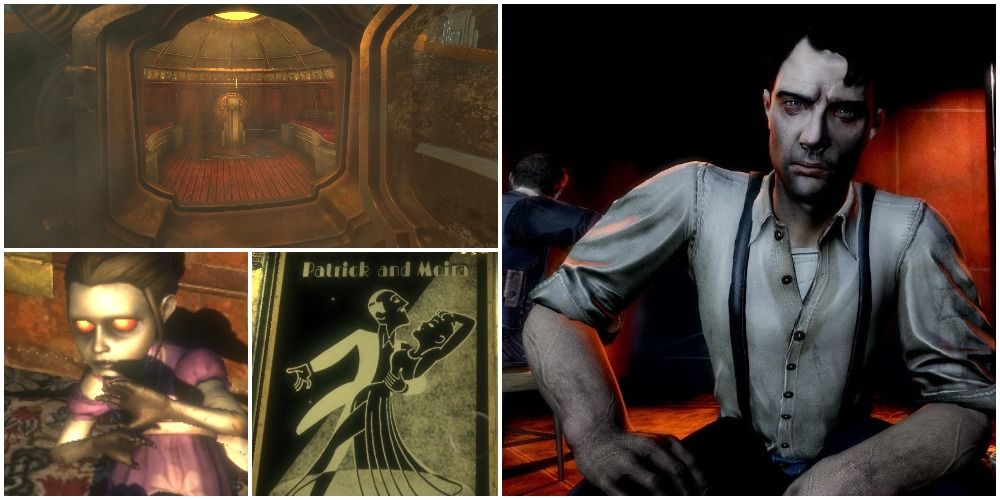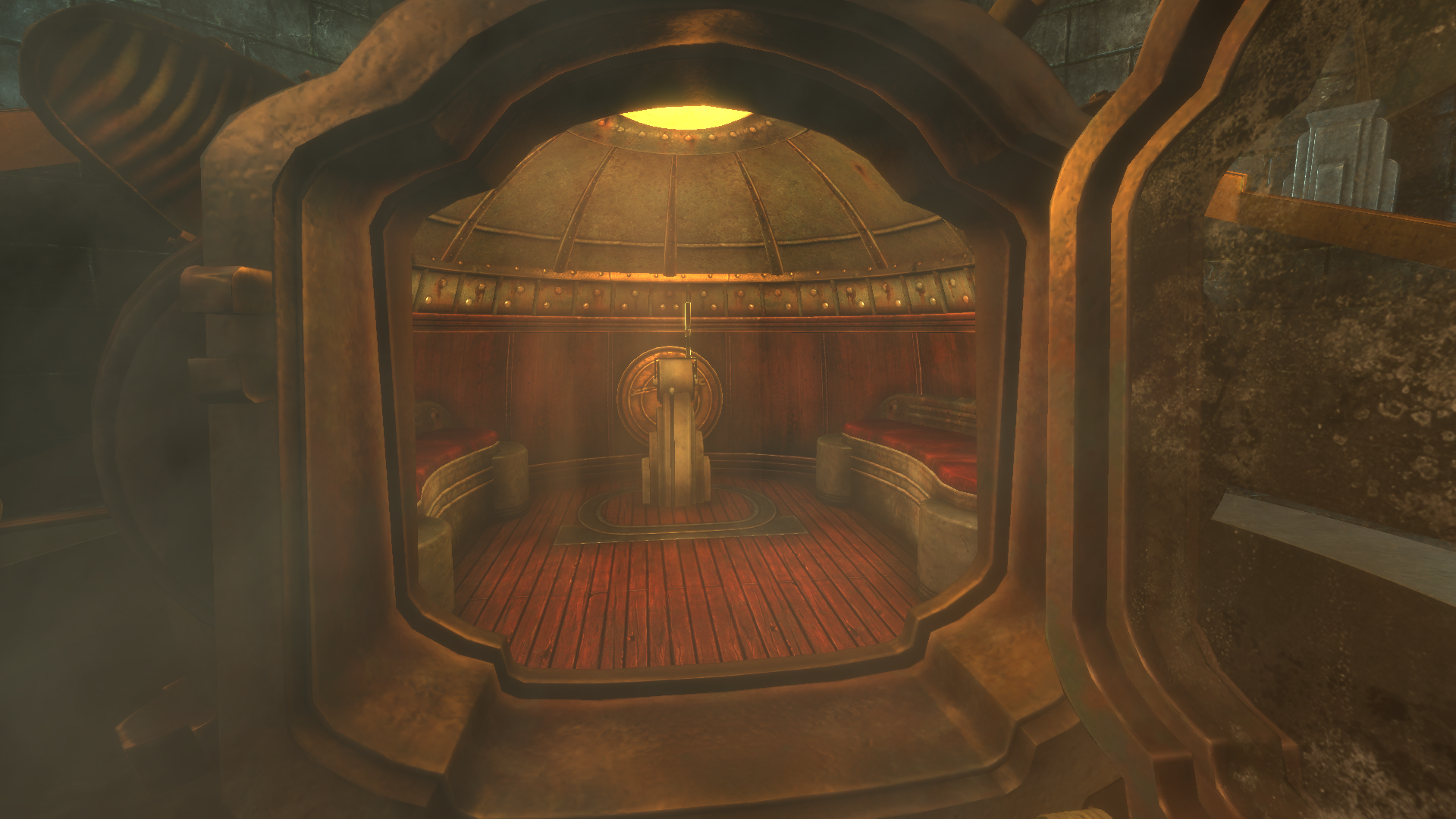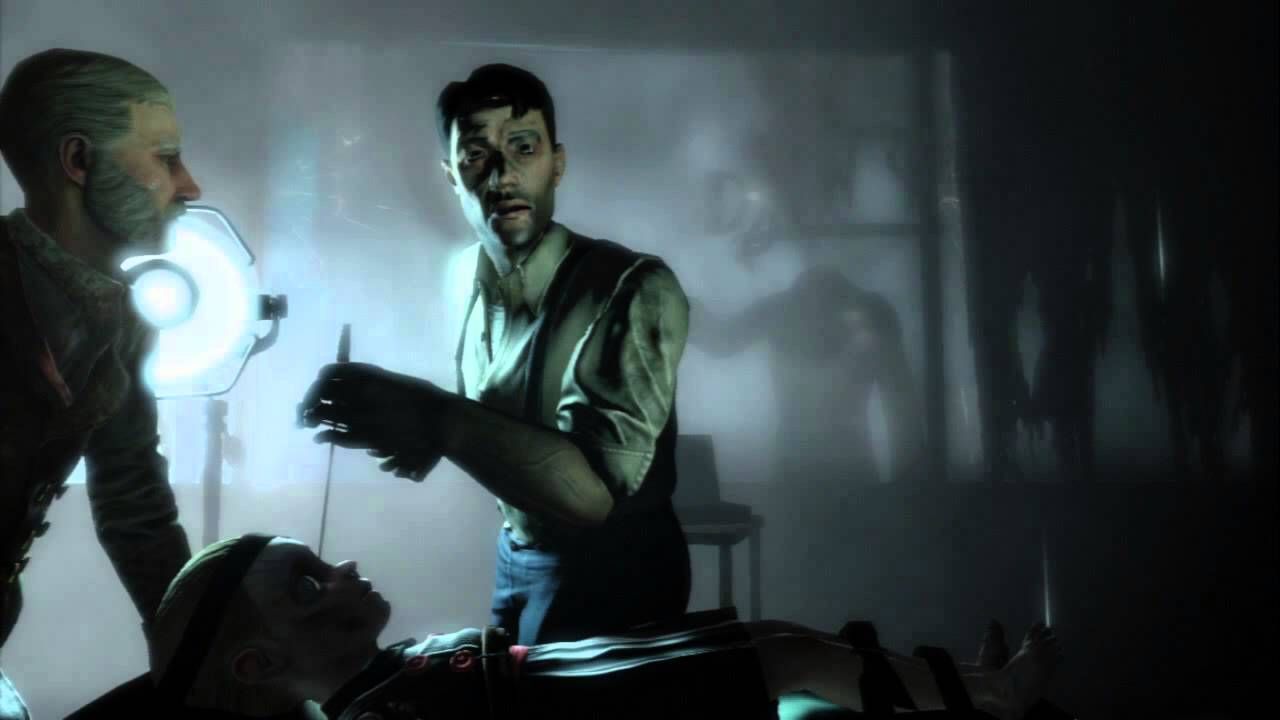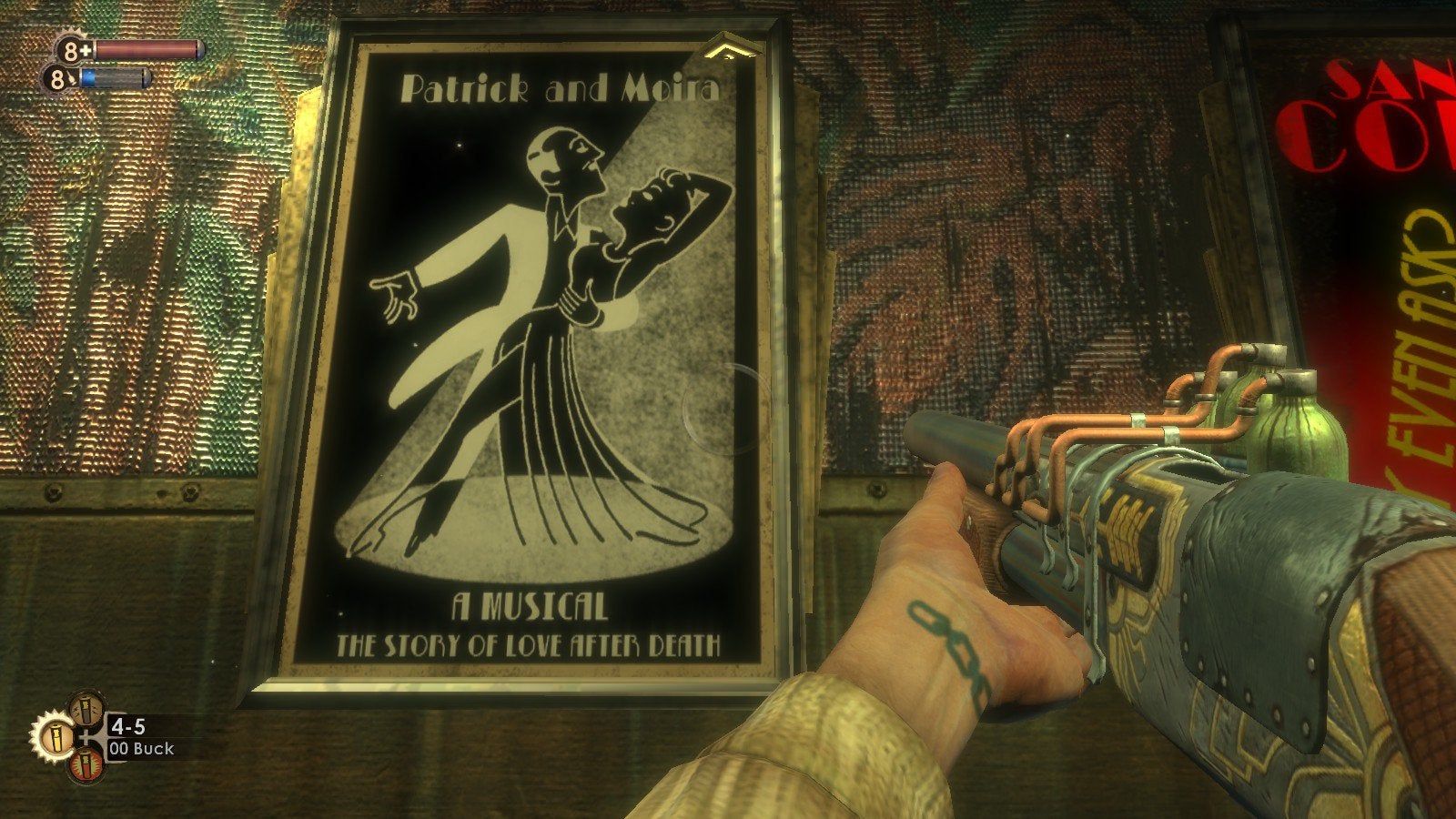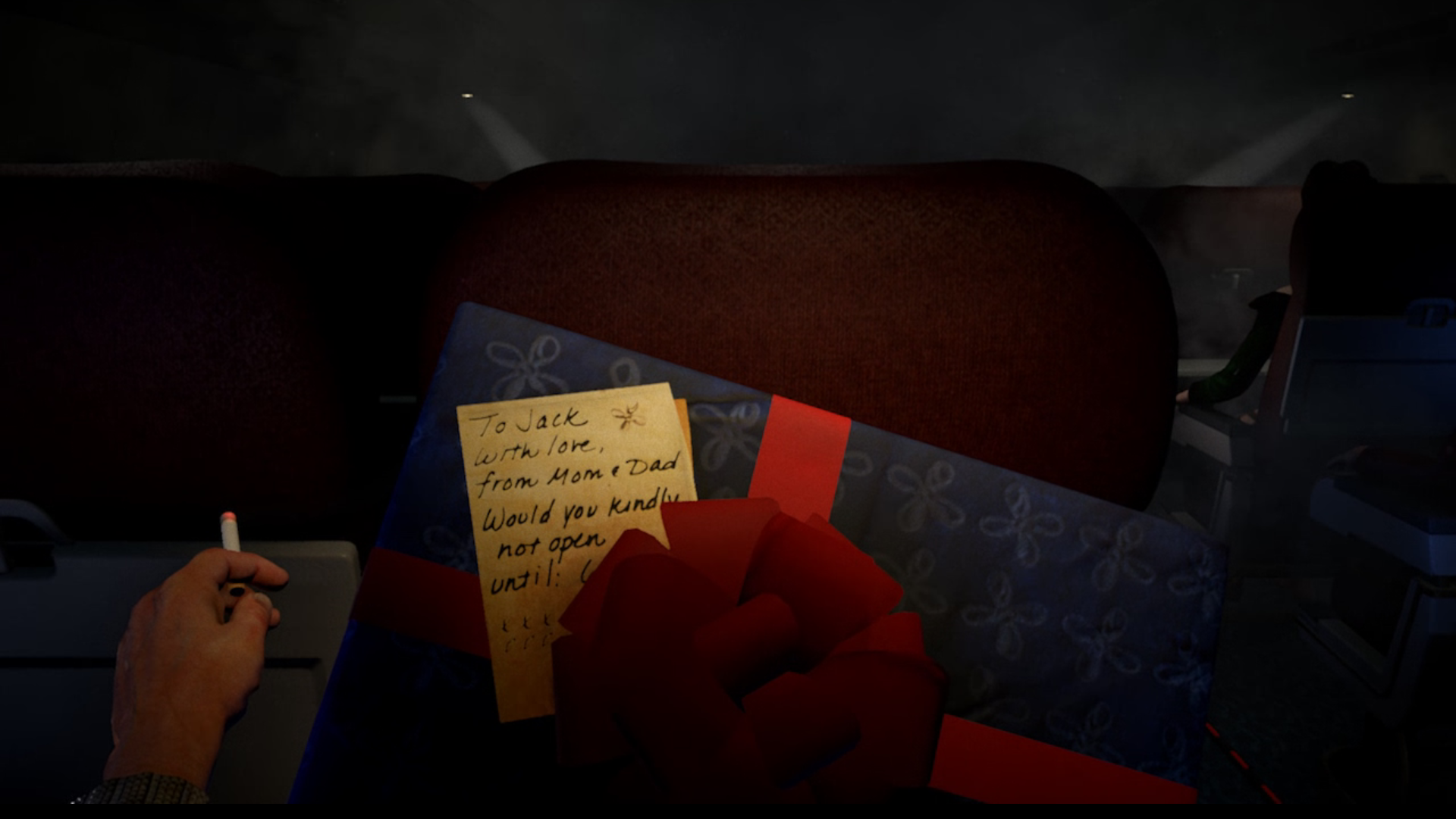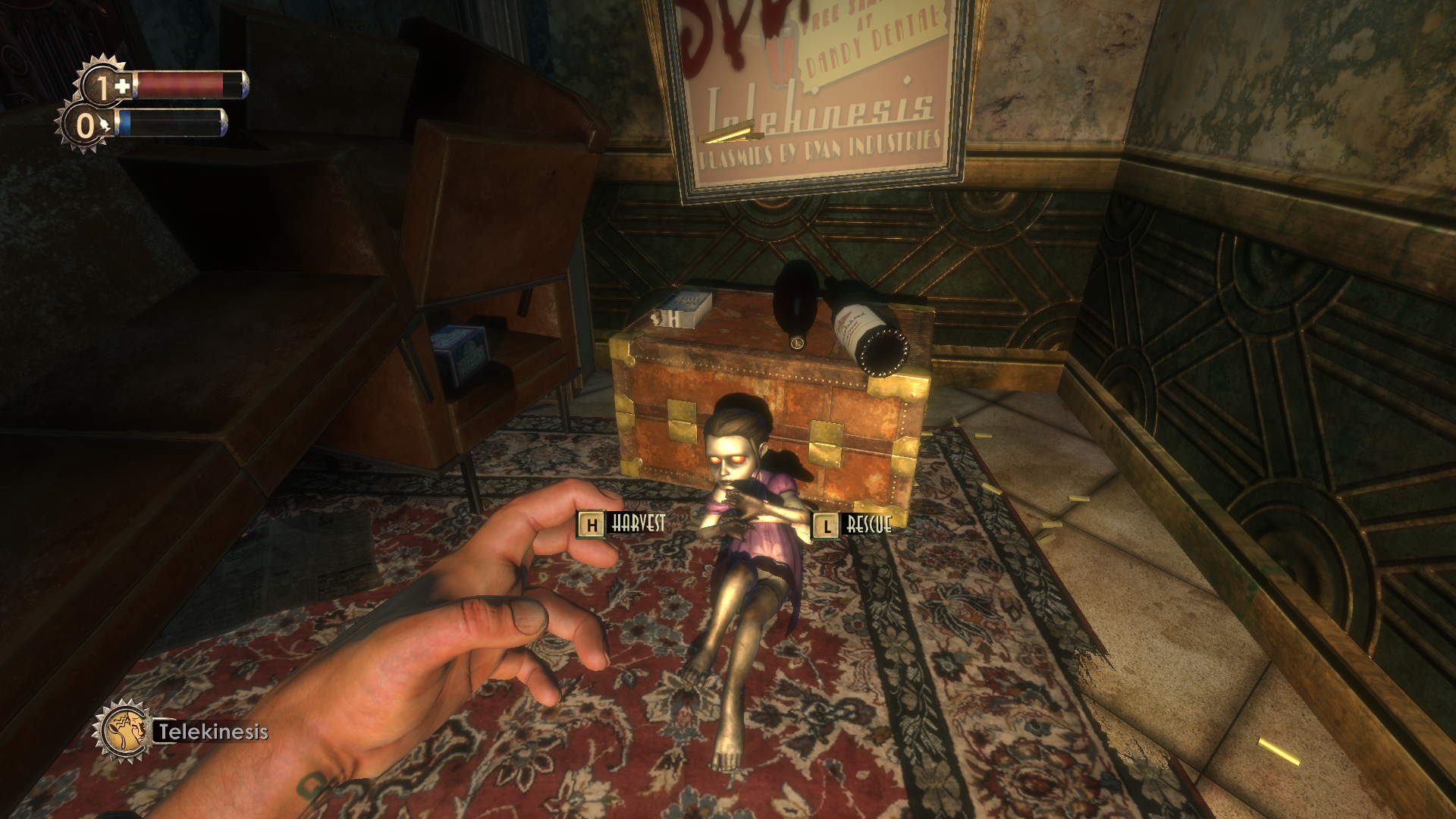Upon its initial release, Bioshock quickly became a video game classic for several reasons. Many felt its gameplay, heavily influenced by Half-Life 2 but also introducing some new mechanics, was extremely unique. It was also well-loved for its strangely simplistic way of telling a complex story. The game is quite minimalistic, to the point where only three characters have unique models. Yet its seemingly simplistic story of a man barely surviving a plane crash only to be trapped in a post-apocalyptic underwater city revealed a complex and detailed world, and the much broader theme of how humanity's imperfection dooms any attempt at a utopia.
One of the biggest plot developments that threw players a curveball was a plot twist during the climax. Atlas, seemingly the one voice of reason in a world gone mad and the one person concerned for Jack's safety, has been playing him from the start. Turns out "Atlas" was in fact an alter-ego developed by one Frank Fontaine, a crooked con artist without the slightest shred of human empathy (though he is very good at faking it). Jack was designed to be his pawn and respond to every command, and the entire plot of the game was a scheme orchestrated by Fontaine to take power.
The twist proved shocking to first-time players and still resonates with Bioshock fans due to its careful execution. This is in large part because it hinges on the player's own instincts, a willingness to follow Atlas's directions without questioning them, simply because it is a common thing to do while playing a game. The trigger phrase "Would You Kindly" has become quite iconic as well for this exact reason.
While the twist can easily shock someone who did not anticipate it, Bioshock's narrative is very carefully sprinkled with clues that Atlas is not on the player's side, though many are surprisingly easy to miss until they get pointed out.
5 Bathyspheres are GENETICALLY Locked
Bioshock's opening makes it look like Jack simply stumbled into Rapture through bad luck, but one hidden recording in Neptune's Bounty that reveals that is impossible. The recording, made by Rapture's police officer Sullivan, states that Andrew Ryan had all the bathyspheres DNA-locked, meaning they can only be used by someone who has the DNA of Ryan or his immediate council. If Jack really was just a random person who accidentally found the lighthouse while escaping a plane crash, he would not have been able to activate the Bathysphere which takes him to Rapture. Although it leaves the details unclear, it indicates that Jack must share genes with someone in Rapture, foreshadowing the reveal that he is Andrew Ryan's son.
4 An Irishman Talks Like an American
Frank Fontaine put a lot of work into his "Atlas" persona, to the point of changing his voice. Fontaine is American but "Atlas" speaks with a distinct Irish accent. One could easily be forgiven for not realizing they are the same person. However, Fontaine does occasionally slip up and unwittingly drop hints that his accent is fake. At one point he states that "Every time we get a yard ahead, Ryan goes and moves the goal line to the other end of the field"- an obvious reference to American football. He also describes Sander Cohen as a "Section Eight"- an American military term for soldiers discharged because of mental issues- and describes a nitro splicer "sounding off like it's the fourth of July." These are phrases that would be very unusual to hear from a working-class Irishman in the 1960's.
This aspect of Fontaine was referenced again during the lobotomy scene in Bioshock: Infinite- Burial at Sea: Episode 2, when Elizabeth manages to provoke Atlas into a rage that causes him to momentarily slip into his native Brooklyn accent.
3 The "Patrick and Moira" Story Is Fabricated
After getting Jack acquainted with the basics of surviving in Rapture, Atlas sends Jack to Neptune's bounty on a rescue mission. Specifically, Atlas needs help getting his wife, Moira, and an infant son named Patrick out of Rapture. After jumping through hoops to get to Neptune's bounty and dealing with crooked survivor Peach Wilkins, Jack makes it to the Bathysphere that is supposed to take Moira and Patrick to safety, only to see it blown up by Andrew Ryan. However, once the mask comes off, Fontaine reveals the whole thing was staged. Moira and Patrick never existed, and he made up the story of a rescue mission so Jack would think he was choosing to pursue Ryan.
There are posters around Rapture for Patrick and Moira, a musical by Sander Cohen which is likely where Fontaine got the names for his made-up family. Additionally, Atlas's descriptions of his family actually contradict each other. At one point he claims to have been married to Moira before arriving in Rapture but also claims their first date was in the city.
2 A Gift With a Very Strange Note
Even before Jack stumbles into Rapture, there are a few hints foreshadowing what is about to happen. The opening scene shows Jack on a plane, smoking a cigarette and revealing a gift from his parents. It seems like a kind gesture on their part to offer something to their son before his flight. However, one easy-to-miss detail is the very strange note attached to the gift. The note includes the phrase "would you kindly"- which later turns out to be the trigger phrase Jack instinctively responds to. Even without knowledge of the twist, it is a very unusual phrase to use in what seems to be a thoughtful gesture. The note also includes some oddly specific instructions. Jack is told not to open the gift until the plane flies over the right coordinates. Sure enough, the package is later revealed to contain a gun and instructions for Jack to use it to crash the plane.
Additionally, just as the screen cuts to black, the plane's systems can be heard saying "altitude, pull up." The only way for Jack to be able to hear this is if he was in the cockpit, yet another subtle clue that he is responsible for the plane crash.
1 Your "Friendly" Ally Encourages You to Murder Innocents
Bioshock famously has a choice which Jack has to make throughout the game. He needs to get ADAM, a substance that can only be obtained from the mutated children known as Little Sisters. He has two options for doing so- he can harvest them, gaining maximum ADAM but killing the child; or he can restore their humanity, which gets less ADAM right away but allows him other rewards later on. The choice acts as a test of character. It is something like a twisted version of the marshmallow test- choosing between short-term or long-term gain. It also tests whether the player embraces or rejects Rapture's ideology, which in turn affects the ending. However, Atlas does not present it as a choice.
Despite supposedly being a man of the people, Atlas shows complete disregard to the Little Sisters. When he first introduces them to Jack, he insists that they are no longer human, and he actually encourages the player to harvest them. He even tries to guilt-trip Jack by claiming that saving the little sister puts his own family in danger. The only reason Jack even learns saving them is an option is because Tenenbaum was there to propose it. Without her interference, the whole game would pretty much just be Jack harvesting little sisters without a second thought.
It does seem odd that a man genuinely acting in the interests of others would have such disregard for obvious victims of Rapture. However, it does make sense as a piece of Frank Fontaine's true nature slipping through his facade. After all, a selfish man like Fontaine would undoubtedly be harvesting little sisters if presented with the same choice, plus he needed to get his secret weapon ready as fast as possible, meaning he wanted Jack to have as much ADAM as he could get. And when has a man like Fontaine ever cared about collateral damage? Such an out-of-character moment offers an early clue that "Atlas" is not the man he claims to be, and especially that he is not quite as nice as he seems.

